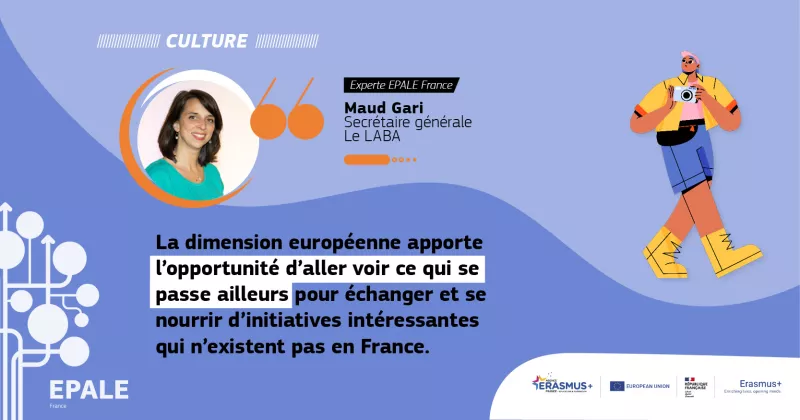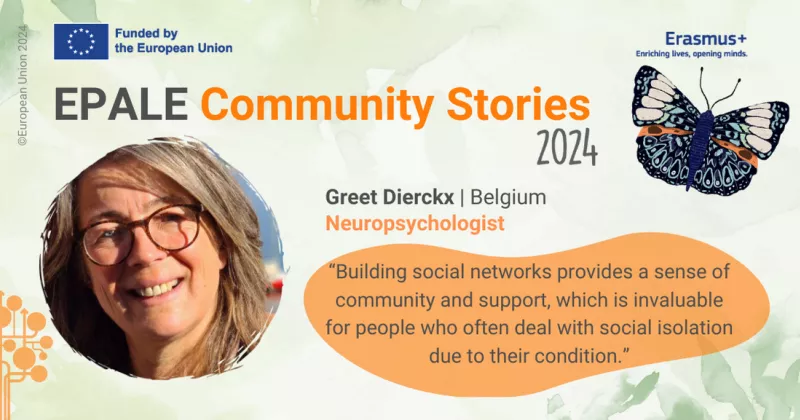‘Starting Up – Accelerators of entrepreneurship 4 inclusion’ - Glykeria Kalamata, Center for Social Innovation – CSI Cyprus (www.csicy.com)

The integration of youth in the labour market is a major issue in the contemporary European context, especially after the COVID-19 outburst, which brought radical changes in the fields of education, employment and socialisation. For a specific portion of the European youth population, though, integration and inclusion remains an even more difficult and demanding process, which requires the involvement of different professionals and entrepreneurs. In particular, more than one million young people in Europe belong to the spectrum of Intellectual and Developmental Difficulties (IDDs), which often lead to limited opportunities and exclusion from educational, occupational and social contexts. For this reason, the cooperation among teachers, educators, stakeholders and policy makers is necessary, in order to provide opportunities for the employment of IDD youth in general, and for self-employment in particular.
In 2018, the first Higher Education course for young people with IDDs started in Portugal, offered by the Higher School of Education – Polytechnic Institute of Santarém. This initiative mobilised teachers, entrepreneurs and relevant policy makers in Portugal, and formed the basis for further development in the field, not only in Portugal but all over Europe. In other European countries, other courses and initiatives have been developed as well. In the framework of such initiatives, the project ‘Starting Up – Accelerators of entrepreneurship 4 inclusion’ was created.
The project ‘Starting Up – Accelerators of entrepreneurship 4 inclusion’ is an Erasmus+ project which aims at creating opportunities for the inclusion of IDD youth with a degree of incapacity up to 60% in education and in the labour market. Through a combination of formal and non-formal methodologies, the project contributes to the development of valuable skills and competences among young people with IDDs, which are crucial for insertion in the labour market, both as employees and as self-employed entrepreneurs.
The project includes several tools that are innovative in this field, since it presents a unique training system that is especially adapted to students with IDDs and to the youth workers that work with them, a job networking platform for enterprises and young graduates adapted to the needs of both employers and employees, as well as tips to help students and graduates create and organise their Curriculum Vitae and increase their employability.
The first tool that was created in the framework of the project is an Entrepreneurship Training Course for Mentors and Pupils, in the form of a Massive Open Online Course (MOOC). It was developed according to the needs of young people with intellectual and developmental difficulties (IDDs) and tested by actual students with IDDs in Portugal. The Training Course includes interactive and visual contents which increase learners’ motivation. Its purpose is to help learners understand the needs of the contemporary European labour market and acquire relevant employment and self-employment skills. The Training Course can be found here: http://trainingcourse4inclusion.ipsantarem.pt/.
The second tool that was developed in line with the first one is a set of pedagogical and didactical methodologies and guidelines to assist professionals who work with students with intellectual and developmental difficulties. The tool has the form of a handbook and aims at assisting professionals in understanding the special needs, interests and learning styles of IDD students and enhancing their teaching and training skills.
The third tool created in the framework of the project is a matching job platform, on which students and graduates with IDDs can upload their CVs in the form of documents or videos, while entrepreneurs who are willing to employ young people with IDDs can post vacancies and job ads. This online platform intends to be a networking space where both the employers and young people can interact in a more personalised way and benefit from each other. This platform will also include information about programmes and funding for self-employment and business creation and it can be found here:
http://startingup4inclusion.ipsantarem.pt/results/jobplatform.
The final tool will be a collection of e-portfolios and Video-Paths created by the IDD learners involved in the project, with the assistance of teachers, researchers and youth workers. Those materials will be created during the various activities of the project, e.g. the educational contents learned, the workshops that the students took part, their hobbies and preferences, as well as their vision of the labour market, where they plan to work and what they can bring to society.
Despite the difficulties and restrictions that came with the pandemic, the project has completed one successful year and will continue until November 2021, aiming at enhancing the skills of as many IDD students and graduates as possible, as well as the professional skills of the people directly working with them (teachers, youth-workers, families). It is estimated that the local, regional and European impact of the project will be a high level of employment for this population group, which in turn will result in social inclusion and social change.
According to Glykeria Kalamata, Project Manager and Researcher at CSI, one of the project’s partners, ‘it is the consortium’s common belief that every little helps, and that, by making one small change every day, we can make a bigger change every year’.




